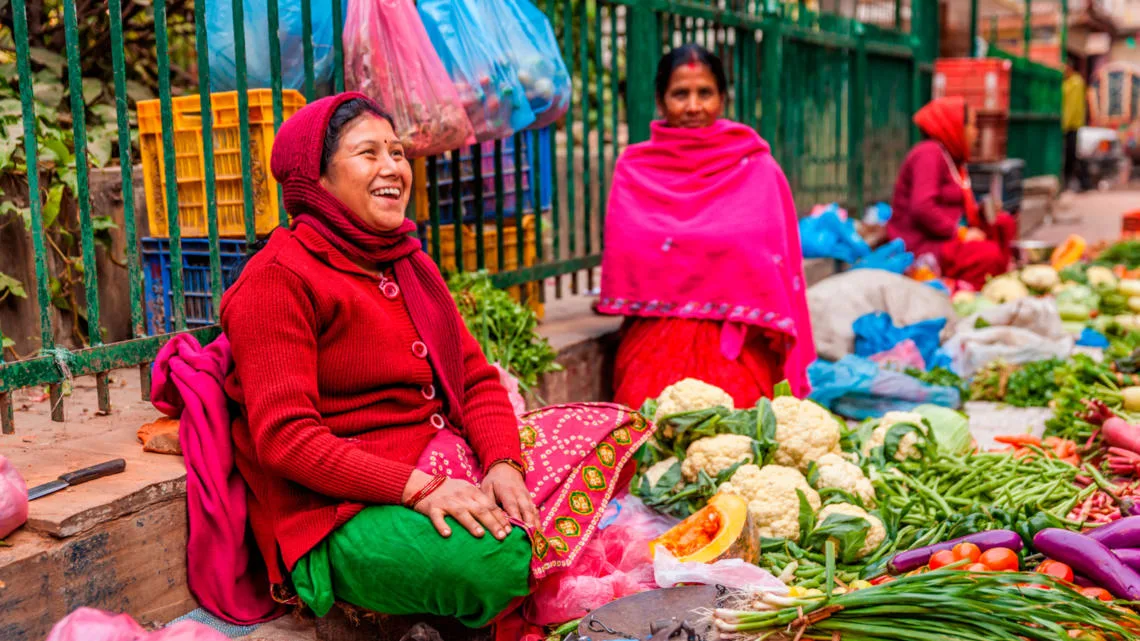Authors
Camille Putois
In today’s context of growing inequalities, an increasing number of companies want to leverage their procurement strategies and programs to support vulnerable groups who do not benefit from job creation or progress towards fair wages to the same extent as others. Ensuring that sourcing practices include these underserved actors in a systematic manner is an additional step forward in the journey toward truly “inclusive growth.”
What does it concretely mean? Inclusive sourcing policies will, for example, focus on micro-entrepreneurs, subsistence farmers, minority-owned businesses or cooperatives, who struggle to access markets, capital and fair compensation, with the objective to identify solutions that benefit these vulnerable groups. Such an endeavor requires a new mindset. Businesses usually assess the impacts of their operations along their supply chains to anticipate any potential negative consequences. Examples include risk-management assessments related to human rights concerns, occupational health and safety and sustainable production and environmental practices. Inclusive sourcing entails going beyond risk mitigation and looking for positive social impact.
Through their spending, businesses have a unique opportunity to promote inclusive practices in their supply chains. However, this requires us to rethink procurement practices. Danone Ecosystem Fund and Danone Romania, for example, launched in 2012 the “Chance for All” program that aims at strengthening milk farming communities across Romania. Intending to turn subsistence farmers into professional farmers while also creating expertise and jobs in small communities, the program also enables Danone to source its milk locally. Additionally, the project helps with capacity building to increase the quality and quantity of the milk produced and promote sustainable farming practices.
Small actors in the supply chain often lack the bargaining power to receive fair compensation for their output. By actively fostering access to decent work and fair wages through their suppliers, companies help empower smaller actors and vulnerable individuals while strengthening their supply chains and enhancing their own economic performance.
Considering the diversity and inclusion goals as strategic imperatives for a company’s procurement strategy can also contribute to increasing competitiveness, innovation and talent attraction. For example, one of L’Oréal’s largest solidarity-based raw material supply projects has been supporting women in Burkina Faso since 2014, covering 100% of the company’s needs in shea butter and shea olein. Purchase contracts ensure that crops are pre-financed, fair prices are paid and women working in producer groups have access to training. Thanks to this project, approximately 39.100 women have been empowered.
However, understanding and assessing the impact of your suppliers’ operations and the challenges they are experiencing is a complex task, especially for global businesses. How can companies ensure inclusive practices are adopted in their supply chains? And how can companies build capacity for more sustainable and inclusive practices among their suppliers and contractors?
To answer these questions and share the best practices with the wider business community, Business for Inclusive Growth (B4IG) brought together a Working Group on Inclusive Sourcing, led by L’Oréal, and encompassing Accenture, AXA, BNP Paribas, Danone, Keurig, Dr Pepper, Mars, Panera Bread, Pret A Manger, Schneider Electric, Sodexo, Unilever, Veolia and Vinci.
Building on L’Oréal’s expertise and their Solidarity Sourcing Program, we developed a methodology that aims to equip procurement teams with practical and operational tools to embed inclusive sourcing principles in their procurement practices. Over eight months, we tested the methodology with a core team of companies to enrich the tool, building on their experiences and efforts to implement inclusive sourcing programs. The B4IG Inclusive Sourcing Methodology results from the lessons and key messages learned from these exchanges.
Through a step-by-step approach, the methodology provides practical tips and concrete examples to support companies from building their inclusive sourcing strategy to systematizing their approach. To this end, we have identified three key stages: (1) Engaging the company’s team and leadership on a common vision, (2) Building an Inclusive Sourcing roadmap and (3) Ensuring the company is engaged in a transformation journey.
Designing and implementing an inclusive sourcing strategy is not an easy journey. Still, for global companies, it is an opportunity to create a positive impact by providing economic opportunities to underprivileged individuals while also improving their economic performance and overall business.
We believe it is critical to share our findings with the rest of the business community and beyond, so that we may pool our resources and learn from one another. We share this methodology with a keen understanding of the challenges businesses have faced and will face in the future to implement such procurement policies. However, we hope that by fostering more open talks and knowledge transfers across the global business community, this guidance can help companies on their journey towards more inclusive supply chains.
Author: Camille Putois, CEO of Business for Inclusive Growth (B4IG)
WBCSD news articles and insights may be republished in accordance with the Creative Commons Attribution-NonCommercial-NoDerivatives 4.0 International Public License, and in accordance with our Privacy Policy. All Content must be featured with due credits.

